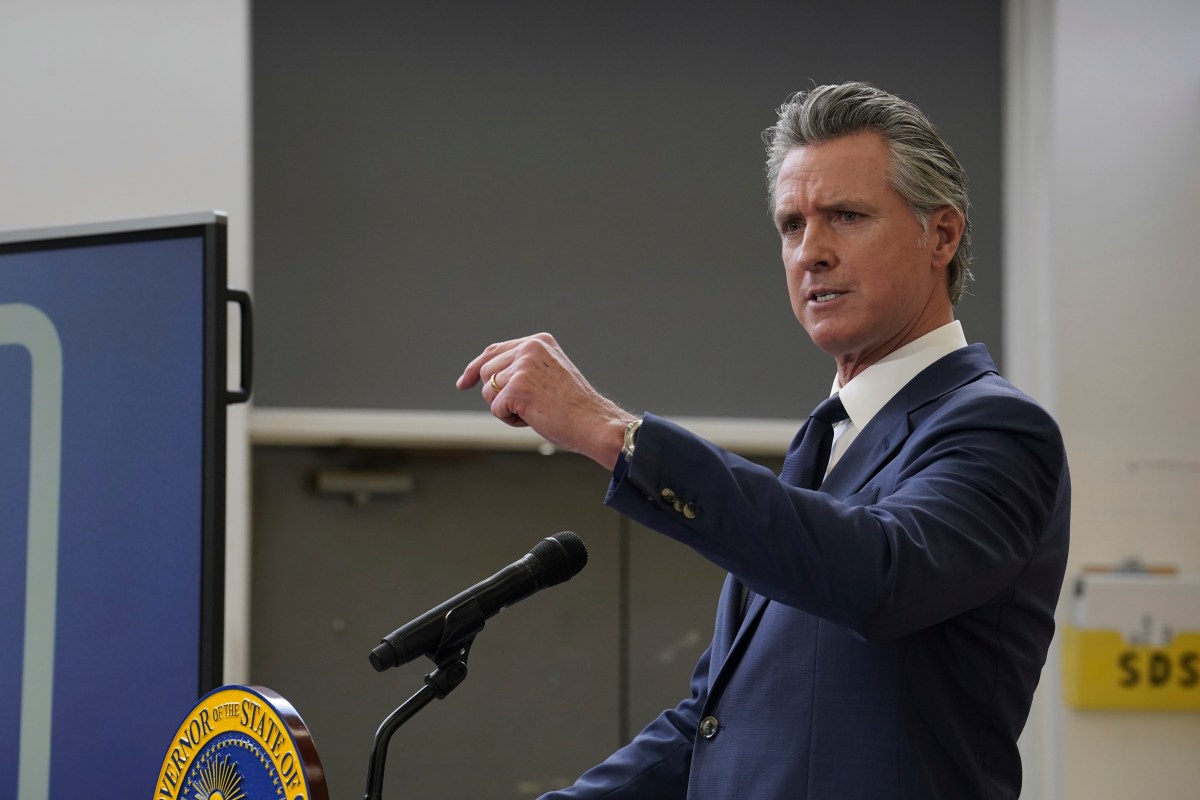Newsom Challenges Trump’s Misinformation on California Wildfires
In recent months, the ongoing discourse surrounding California wildfires has become increasingly contentious, particularly with former President Donald Trump making headlines for his misleading claims about the state’s forest management practices. California Governor Gavin Newsom has stepped forward to confront these inaccuracies, emphasizing the importance of factual information during natural disasters. This clash not only highlights the immediate need for clear communication in emergency situations but also underscores the broader implications of political rhetoric on public understanding and response efforts.
The Background of the Wildfire Debate
California has long been vulnerable to wildfires, a threat exacerbated by climate change, prolonged droughts, and mismanagement of forest resources. In 2020, the state experienced one of its most devastating wildfire seasons, with over 4 million acres burned. This prompted a surge of political debate regarding the causes and solutions to the crisis, with various stakeholders weighing in on the best strategies for wildfire prevention and control.
Former President Trump, known for his controversial statements, has attributed California’s wildfire issues primarily to poor forest management. He has repeatedly claimed that the state’s environmental regulations prevent adequate forestry practices, leading to a buildup of dry vegetation that ignites easily. His comments, often made on social media and in speeches, have resonated with a segment of the population that seeks to assign blame rather than address the multifaceted nature of the problem.
Governor Newsom’s Response
In a recent press conference, Governor Newsom took a stand against Trump’s misinformation, asserting that the issue is far more complex than the former president suggests. “Fire knows no boundaries,” Newsom stated, emphasizing that the wildfires are not solely a result of poor forest management but are influenced by climate change, land use, and other environmental factors.
Newsom’s administration has implemented various initiatives aimed at reducing wildfire risks, including:
- Increased Funding: Allocating millions of dollars toward forest management and fire prevention programs.
- Community Engagement: Encouraging local communities to participate in fire risk assessments and mitigation strategies.
- Technology Utilization: Employing advanced technology for early detection and monitoring of wildfire activity.
By spotlighting the comprehensive approaches taken by California, Newsom aims to educate the public and counteract the oversimplified narratives that often dominate discussions about wildfires.
The Importance of Accurate Information
The clash between Newsom and Trump highlights a critical issue: the need for accurate information during crises. Misinformation can lead to misunderstanding the severity of threats, resulting in inadequate public response and potential loss of life. During wildfires, timely access to reliable information is essential for:
- Effective Evacuations: Clear communication can save lives by ensuring that residents are aware of imminent dangers.
- Resource Allocation: Accurate data helps emergency services deploy resources effectively to combat fires and assist affected communities.
- Public Preparedness: Educating the public on fire safety and prevention measures is vital for reducing risks.
Newsom’s challenge to Trump’s claims serves as a reminder that leaders have a responsibility to provide their constituents with truthful and comprehensive information, especially in the face of natural disasters.
Political Rhetoric and Its Impact
The interplay between political rhetoric and public perception cannot be overstated, particularly in times of crisis. Trump’s assertions about California’s forest management are not just casual remarks; they shape public understanding and can influence policy decisions. When misinformation spreads, it can lead to:
- Public Mistrust: Citizens may become skeptical of official guidance if they perceive it as contradicting widely circulated claims.
- Policy Misalignment: Political leaders may prioritize initiatives based on incorrect assumptions, diverting resources from effective solutions.
- Increased Polarization: Misinformation can deepen divides, making it more challenging to unite efforts toward common goals.
In a state that has consistently battled wildfires, the political narrative surrounding these events is crucial. Newsom’s proactive stance against misinformation not only aims to set the record straight but also seeks to foster a collaborative approach to wildfire management that involves all stakeholders.
The Role of Media and Public Discourse
The media plays a pivotal role in shaping public understanding of issues like wildfires. Responsible journalism is essential for disseminating accurate information, especially during emergencies. As Newsom continues to challenge misinformation, it becomes increasingly important for news outlets to fact-check claims and provide context to complex issues.
Moreover, the public discourse surrounding wildfires can benefit from a more nuanced understanding of the factors at play. Engaging in constructive conversations about climate change, land management, and emergency preparedness can lead to better strategies and policies that protect communities and ecosystems alike.
Looking Ahead: A Call for Unity and Action
As California navigates the challenges posed by wildfires, it is imperative for leaders, citizens, and media alike to prioritize accurate information and constructive dialogue. Newsom’s challenge to Trump’s misinformation serves as an essential reminder that combating wildfires requires a collective effort rooted in truth and understanding.
Moving forward, California must focus on:
- Investing in Sustainable Practices: Emphasizing forest management techniques that promote ecological health and resilience against fires.
- Enhancing Community Resilience: Ensuring that local communities are equipped with the knowledge and resources to prepare for and respond to wildfires.
- Advocating for Climate Action: Addressing the underlying causes of climate change to mitigate its impacts on wildfire frequency and intensity.
In conclusion, the discourse surrounding California wildfires is not just about flames and smoke; it is about the integrity of information, the responsibility of leaders, and the resilience of communities. Governor Gavin Newsom’s confrontation with former President Trump over misinformation is a crucial step in fostering a more informed and prepared society, capable of facing the challenges that natural disasters present.
See more BBC Express News

